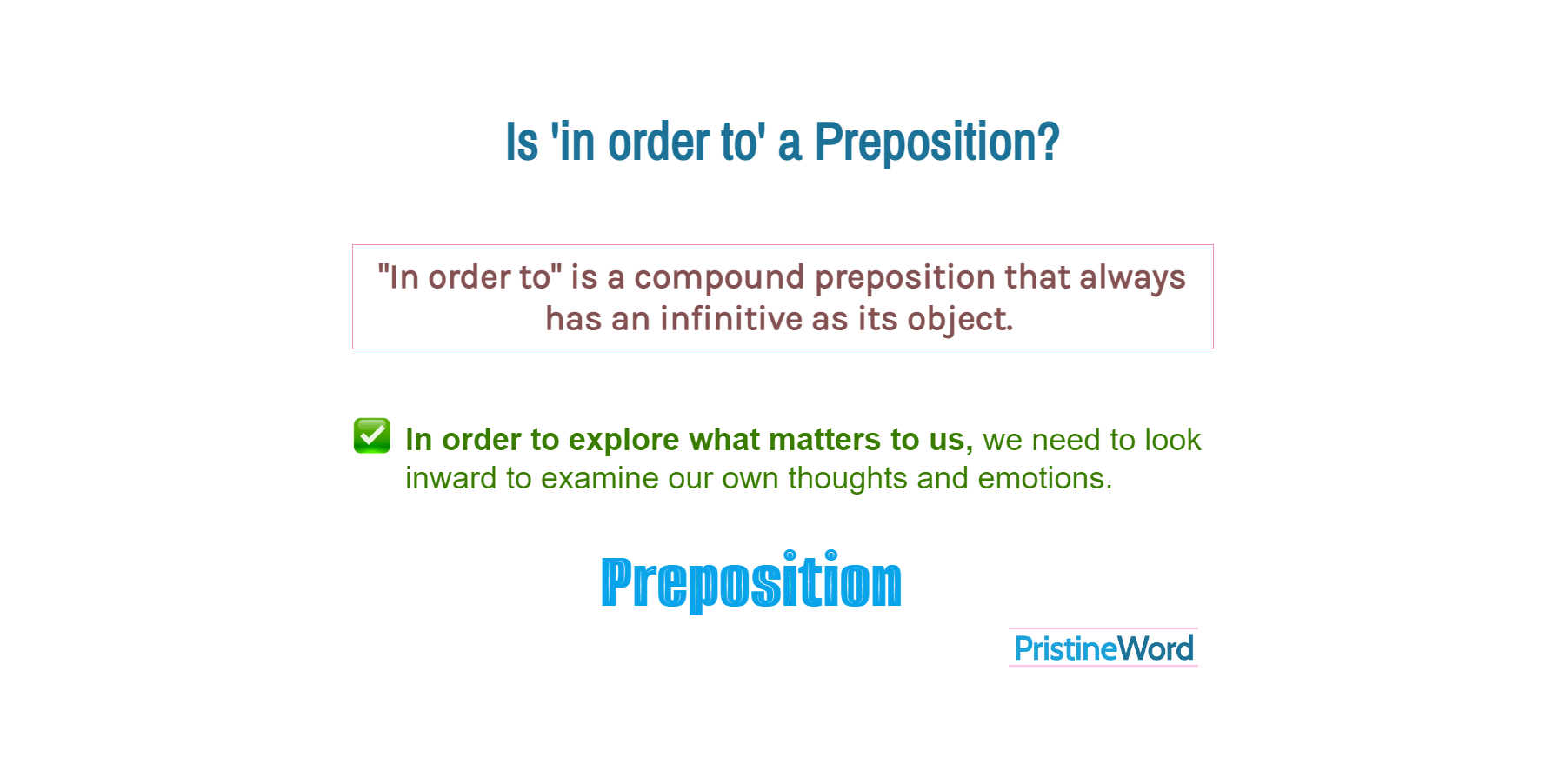"In order to" is a compound preposition that always has an infinitive as its object. It's not unusual for an infinitive to be the object of a preposition.
"In order to" is a compound preposition that always has an infinitive as its object. It's not unusual for an infinitive to be the object of a preposition (e.g., "He does nothing but complain about money.")
In order to get rich and stay rich, you need to be mindful of where you are investing your money.
"In order to" is often, but not always, followed by a stative verb, such as have, be, appear, understand, know, seem, etc. Stative verbs express a state or condition rather than an action.
What do I need to learn in order to understand this topic?
You need to identify viable markets in order to be more effective.
You can use the construction "in order (for someone/something) to..." as well.
In order for the company to remain competitive, sales would need to rise by at least 30%.
Notice that you can use "in order to" at the beginning of a sentence. In this situation, add a comma after the introductory phrase starting by "in order to".
In order to explore what matters to us, we should look inward to examine our own thoughts and emotions.
You can almost always replace "in order to" with "to". "In order to" is considerably more frequent in writing than in speaking. It is also more formal.
In order to grow as a person, explore new activities and develop your creativity.
To achieve your goals, set a deadline and work on your mindset.
And remember, the negative form of "in order to" is "in order not to".
She worked hard in order not to fail.

